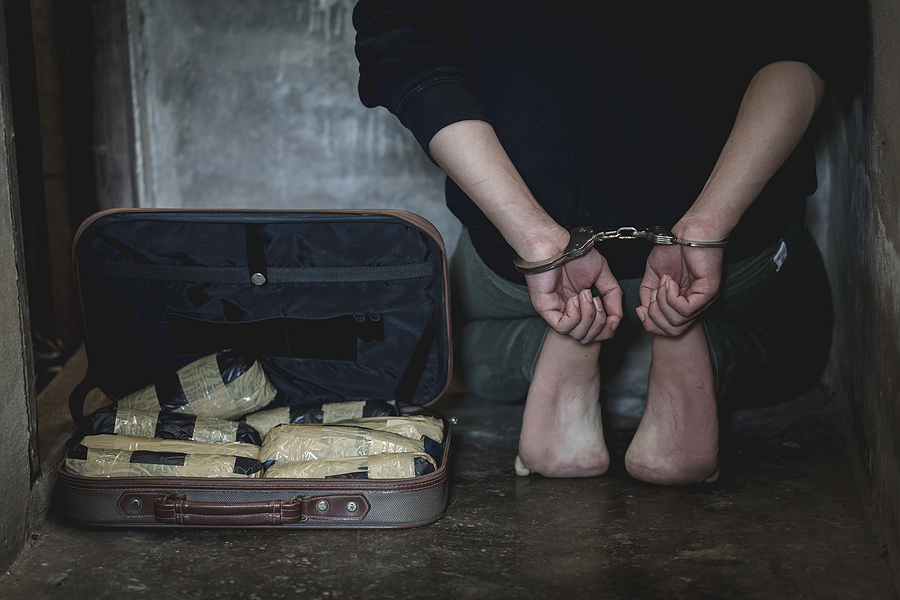If you are caught in possession with the intent to distribute or sell illegal drugs, you could be charged with drug distribution in Georgia. This crime includes the sale, delivery, or transfer of any controlled substance, including marijuana, cocaine, heroin, methamphetamine, and ecstasy. Even the mere possession of large quantities of drugs, packaging equipment, and other drug-related paraphernalia can be enough evidence to charge you with drug distribution.

What are Drug Distribution Charges in Georgia?
Drug distribution charges in Georgia refer to the act of unlawfully selling, distributing, or delivering illegal drugs. These charges are often categorized as felony drug offenses, which come with severe legal consequences, such as long-term imprisonment, hefty fines, probation, and a criminal record. A person can be charged with drug distribution in Georgia if they possess illegal drugs intending to distribute them or if they engage in transporting, manufacturing, or cultivating drugs.
Anyone who is caught with large quantities of drugs, multiple controlled substances, or drugs packaged for sale can also face drug distribution charges. The severity of the charges often depends on the type and quantity of the drug involved, as well as any aggravating factors.
Evidence and Elements Required for Drug Distribution Conviction
Drug distribution requires certain elements and evidence to secure a conviction in court. The prosecution must establish that the defendant knowingly and intentionally distributed, manufactured, or possessed illegal drugs with the intent to distribute or sell them. The prosecution must also prove that the number of drugs discovered was significant enough to warrant drug distribution charges and that the illegal drugs seized belong to the defendant.
To prove these charges, the prosecution may rely on various types of evidence, including witness testimony, physical evidence, and circumstantial evidence. Witness testimony is one of the most critical pieces of evidence used in drug distribution cases. Witnesses who can identify the illegal drug, the defendant, and the drug distribution operation can help secure a conviction.
Physical evidence can also help corroborate witness testimony and establish the defendant’s involvement in drug distribution. For example, drug paraphernalia, such as scales, packaging, and residue, can provide evidence of drug distribution operations.
Circumstantial evidence can also be vital in drug distribution cases. The prosecution can use circumstantial evidence to establish the defendant’s knowledge of the drug distribution operation or their involvement in the drug trade. For example, if an individual is known to have a history of drug offenses, law enforcement may use this history to infer their involvement in drug distribution. In summary, a drug distribution conviction requires proof of several elements and relies on various types of evidence.
Defenses Against Drug Distribution Charges
There are several effective defenses against drug distribution charges that may help you reduce or even dismiss your charges. One of the most common defenses is that the drugs were not intended for distribution or sale. This defense argues that you were in possession of the drugs for personal use only and that there was no intention of distributing them. A skilled defense attorney can help you present evidence that supports your case, such as a prescription for the drugs or witnesses who can attest that you were not selling them.
Another possible defense is that you were unaware of the drugs’ presence or purpose. For example, if someone else had placed drugs in your car or home without your knowledge, you may be able to argue that you had no knowledge of the drugs and, therefore, could not have been distributing them.
You may also be able to argue that you were falsely accused or that the evidence against you was obtained illegally. In some cases, the authorities may have violated your rights when obtaining the evidence used to charge you with drug distribution. For example, if the police searched your home without a warrant, any evidence found during that search may be inadmissible in court.
You may be able to argue that you were coerced or threatened into distributing drugs. This defense might be especially effective if you were forced to distribute drugs under duress, such as a threat to your safety or that of your family.
Contact a Savannah Criminal Defense Attorney
Drug distribution carries serious consequences, and individuals facing these charges must seek legal counsel to defend themselves against the prosecution’s claim. A strong defense can challenge the credibility of the evidence, dispute the element requirements, and help defendants receive a fair trial. We can help.
The attorneys at Phillips Carson Phillips have provided firm defense against drug crimes charges for more than 40 years. Serving the Savannah area and throughout Georgia, we practice at both the state and federal levels. Regardless of the crime, we fight aggressively to protect our clients’ rights. Contact Phillips Carson Phillips by calling (912) 232-0081 or using our online contact form to schedule a free initial consultation today.
